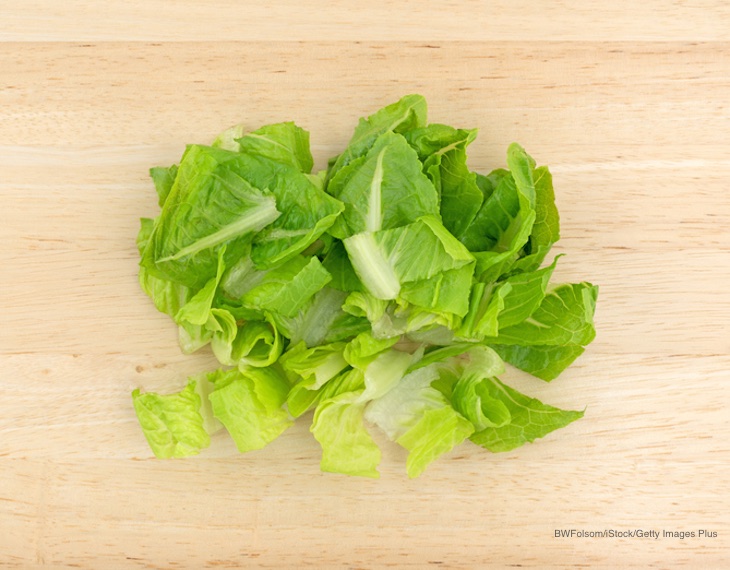Consumers Reports has issued advice telling consumers how to buy safer lettuce in the wake of serious E. coli and Listeria monocytogenes outbreaks. Those outbreaks happen every year: earlier this year a Listeria outbreak was linked to Revolution Farms lettuce blends. And in fact, in 2018 Consumers Reports advised people to avoid romaine lettuce altogether until the FDA had a handle on that year’s outbreaks. While it isn’t possible to ensure that all lettuce or leafy greens you buy are perfectly safe, there are some things you can do to reduce your risk of illness.

There were 78 foodborne illness outbreaks linked to leafy greens between 2014 and 2021 that sickened hundreds of people and hospitalized many. Some of the outbreaks were solved and some weren’t.
The lettuce can become contaminated in several ways. Irrigation water can contaminate the greens in the field. In many areas, concentrated animal feeding operations (CAFOs) are located near some lettuce farms, and the feces runoff from those farms can seep into irrigation water ponds and streams. Animals can poop on the fields while the lettuce is growing. Romaine lettuce is particularly susceptible to these types of contamination because it is shaped like a cup and holds water in the center. Contamination can also occur during harvest, processing, and packaging. If one head of lettuce is contaminated, that head can contaminate many bags of processed chopped lettuce.
There are some methods to clean the greens that are recommended by some, but will not kill pathogens. Soaking greens in vinegar will not kill all pathogens, but it may help reduce bacterial levels. Produce washes, too, will not kill all bacteria. It’s still important to rinse all lettuce (except bagged lettuce) thoroughly before you eat it.
Some types of lettuce are less likely to be contaminated; hydroponic lettuces may carry less risk. But unless the company that produces them follows safety practices to the lettuce, those types of greens can become contaminated.
Whole heads of lettuce may be safer, since they aren’t as processed and are handled less. Remember that one head of contaminated lettuce, when it’s chopped up, can contaminate hundreds of bags of prepared salads.
Always refrigerate lettuce, whether it’s whole or chopped or torn. And buy packages with expiration dates as far in the future as possible, since Listeria monocytogenes bacteria can grow at refrigerator temperatures. You want to keep the contamination level as low as possible. And never eat lettuce if any of the leaves are bruised, damaged, or slimy.
To be perfectly safe, use greens that are cooked before serving. You can cook spinach and kale and other sturdy greens such as mustard greens. This is important for people who are most susceptible to serious complications from food poisoning, which include the elderly, the very young, pregnant women, and people with chronic illnesses and compromised immune systems.
And know the symptoms of a foodborne illness, so if you do get sick, you can contact your doctor and get help early.




